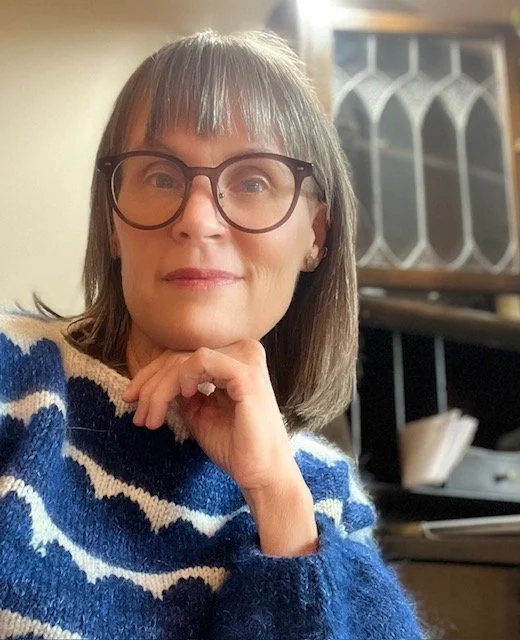We’re Celebrating One of Our Own: Bronwyn Melville Nominated for PEN/Robert J. Dau Prize
The PEN/Robert J. Dau Short Story Prize for Emerging Writers recognizes 12 emerging writers each year for their debut short story published in a literary magazine, journal, or cultural website, and aims to support the launch of their careers as fiction writers. The 12 winning stories are selected by a committee of three judges who are well-respected experts in the art of the short story. The winning writers each receive a $2,000 cash prize and will be published by Catapult in their annual anthology, Best Debut Short Stories: The PEN America Dau Prize.
The prize is generously supported by the family of the late Robert J. Dau, whose commitment to the literary arts has made him a fitting namesake for this career-launching prize. Inspired by Dau’s hometown in northern Michigan and its proximity to Walloon Lake, where Ernest Hemingway spent much time and derived inspiration from, the prize promotes emerging voices and spotlights the next generation of fiction writers. —Directly quoted from the PEN website.
Sometimes a story finds you at exactly the right moment—when you’re open, when you’re paying attention, when you’re ready to catch what it’s offering. That’s how it felt reading Bronwyn Melville's “Old Friend” for the first time. And now, we’re thrilled to announce that we’ve nominated this gorgeous, heartbreaking piece for the PEN/Robert J. Dau Short Story Prize for Emerging Writers.
It’s a meaningful platform for exactly the kind of writer we champion here at Blank Spaces: someone with a powerful voice, meticulous craft, and something urgent to say.
Why This Story Matters
"Old Friend" does what the best short fiction does—it trusts you. Melville doesn't over-explain or hold your hand through the grief that pulses beneath every sentence. Instead, she gives you fragments: a woman at a party holding a baby conceived from frozen sperm; a man who once carved masks from discarded poplar logs; postcard arriving two days after news of a friend’s death in India, still radiating with life and wonder.
The narrator circles these moments, trying to make sense of absence, trying to understand what we leave behind. The prose is lean and precise, every detail earned.
There’s the blue tarp that still smells of camp-smoke. The market scene snaking into the distance with its bounty of colour. Those logs that “sagged like an old bed” and receded “like a pile of broken tombstones.” This is a story about the impossible mathematics of loss—how people we knew keep reshaping our present, how the dead refuse to stay still in our memories. It’s about art as a form of resurrection, about finding spirits in deadfalls, about what persists.
The Craft
What strikes us most is Melville’s control. She moves between timeframes with confidence, trusts silences, knows when to zoom in close (that fine-grit sandpaper perfecting intimate details of a face) and when to pull back for perspective. The story’s structure mirrors its themes—fragmented, layered, always circling back to what’s missing.
There’s a restrained tenderness here, a refusal to sentimentalize grief even as the story honours it completely. The closing image—bare feet pressing down stratified layers at a playground, the chipper turning those sacred logs into mulch—manages to be both devastating and somehow life-affirming.
Why We Think This Story Will Stand Out
The judges for the Dau Prize are looking for debut fiction voices with staying power, and Melville’s prose has a maturity that belies her emerging status. She writes with the precision of someone who’s done the work—collecting those “dozens of rejections,” as her bio mentions with characteristic humour—and refined her craft through practice and persistence.
The story also does something we value deeply: it makes room for mystery. Not everything resolves. Not everything needs to. Like Paul digging into that stump with his chainsaw and finding “anything you want, or anyone,” the story trusts readers to bring themselves to it, to find their own reflections in its surfaces.
This is exactly the kind of authentic, uncompromising voice we built Blank Spaces to amplify.
What's Next
The winners will be announced in the coming months, and we’ll be cheering for Bronwyn every step of the way. Whatever happens, we’re proud to have published “Old Friend” and to support a writer of this calibre at the beginning of what we hope will be a long and celebrated career.
If you haven’t read the story yet, we encourage you to seek it out. Let it sit with you. Let it ask its quiet, insistent questions.
This is what we’re here for—to give platform to voices like this, to champion the work that deserves to be heard, to fill our collective blank space with stories that matter.
Bronwyn’s nominated story appeared in the September 2025 issue of Blank Spaces. Get yourself an instant download right now for 50% with the code STORY and experience her prose for yourself.


